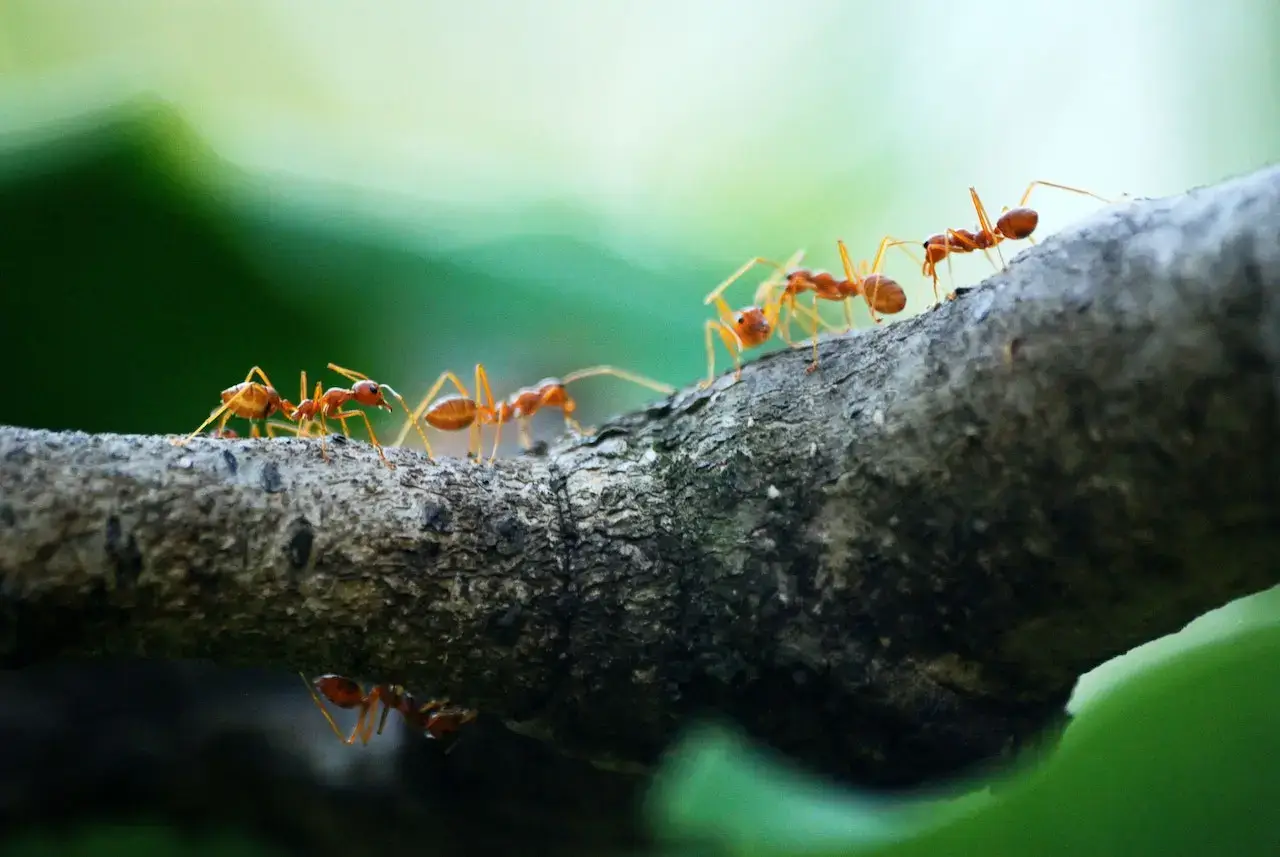Comprehensive Termite Control: Protect Your Home with Expert Services
Wiki Article
Environmental Influence of Bug Control: Balancing Effectiveness With Sustainability
The ecological impact of insect control is an essential problem that requires a delicate equilibrium between accomplishing effectiveness in making sure and handling bugs sustainability of our communities. From the use of unsafe chemicals that seep into our soil and water to the unintentional repercussions on non-target varieties, the consequences of traditional insect control practices are far-reaching.Damaging Chemicals in Bug Control
The use of harmful chemicals in bug control presents considerable environmental and health and wellness dangers that call for careful factor to consider and mitigation techniques. Insecticides, herbicides, and chemicals are frequently made use of to get rid of insects, however their widespread application can lead to unintended effects. These chemicals can contaminate soil, water resources, and the air, impacting not just the targeted pests but also beneficial pests, wild animals, and people.
To address these dangers, integrated parasite administration (IPM) strategies are being promoted as a much more sustainable alternative. IPM includes a combination of techniques such as organic control, habitat adjustment, and the targeted use pesticides as a last hope (ant control lexington nc). By embracing an alternative approach to pest control, we can lessen the environmental and health and wellness influences related to damaging chemicals while effectively handling pest populations
Influence On Non-Target Species
Taking into consideration the unintentional repercussions of bug control approaches, the impact on non-target species is a critical element that requires comprehensive assessment. While bug control steps aim to target particular pests, various other microorganisms in the ecological community may be inadvertently impacted. Non-target varieties, consisting of valuable bugs, birds, mammals, and also plants, can experience indirect or straight harm from pesticide applications or biological control techniques.Chemicals can have deadly or sub-lethal effects on non-target types. Pesticides developed to battle a specific insect parasite may harm pollinators like bees or natural killers such as ladybugs. In addition, chemical residues can accumulate in the atmosphere, influencing non-target organisms over time. Likewise, biological control agents, if not species-specific, can pose dangers to unintentional targets, disrupting the eco-friendly balance.
To alleviate the effect on non-target varieties, integrated insect management (IPM) methods that emphasize a holistic strategy to pest control are recommended. These approaches focus on using eco pleasant techniques, lessening harm to beneficial organisms while effectively managing pest populations. Performing detailed danger evaluations and keeping track of the end results of pest control initiatives are important action in securing non-target species and advertising overall environment wellness.
Dirt and Water Contamination
Unplanned environmental consequences of pest control techniques extend past impacting non-target species, with considerable implications for dirt and water contamination - termite control. Chemicals, herbicides, and chemical fertilizers used in parasite control can leach right into the dirt and infect groundwater, positioning a hazard to both water and terrestrial communities.Water contamination is an additional crucial issue associated with parasite control methods. Runoff from farming fields treated with chemicals can bring these chemicals into close-by water bodies, influencing marine microorganisms and water top quality. Pollutants in water resources can have significant repercussions, impacting not only marine life however additionally human health through the usage of infected water or marine microorganisms. To alleviate soil and water contamination from insect control tasks, incorporated bug monitoring methods that prioritize sustainability and reduce chemical inputs are crucial.
Air Air Pollution From Chemical Use
Direct exposure to airborne pesticides throughout agricultural applications presents a substantial problem for air contamination control actions. Additionally, chemical drift, where chemicals are brought by the wind to unintentional locations, can lead to the contamination of neighboring communities and water bodies.
Strategies for Sustainable Bug Control
In the realm of farming techniques, executing sustainable pest control techniques is vital for maintaining ecological balance and protecting plant returns. Lasting pest control highlights the use of eco-friendly techniques to manage pest populations effectively while reducing damage to non-target microorganisms and communities. Integrated Insect Monitoring (IPM) is a commonly taken on technique that incorporates biological, cultural, physical, and chemical control methods to achieve long-lasting bug administration services.One trick method in lasting bug control is advertising biodiversity within agroecosystems. By improving natural enemies of pests, such as predators and parasitoids, farmers can reduce the need for artificial chemicals. Plant rotation and diversification are likewise efficient techniques to disrupt pest life process and develop much less positive problems for bugs to prosper. Furthermore, using pest-resistant crop selections and utilizing methods like catch chopping can help in reducing pest stress without depending heavily on chemical treatments. Inevitably, by incorporating these sustainable pest control approaches, farmers can accomplish a balance in between pest administration efficiency and environmental stewardship.
Final Thought
To conclude, the environmental influence of insect control techniques must be meticulously thought about to stabilize effectiveness with sustainability. Unsafe chemicals utilized in parasite control can cause soil and water contamination, air contamination, and harm non-target types - ant control. It is vital to implement sustainable bug control methods to minimize these unfavorable results on the environment and promote a healthier ecological community for future generationsBy adopting an alternative approach to pest control, we can reduce the ecological and wellness impacts associated with damaging chemicals while properly handling pest populaces.

To alleviate the air pollution triggered by pesticide use, it is necessary to embrace incorporated bug management methods that focus on the use of non-chemical bug control methods, such as plant rotation, all-natural predators, and immune plant ranges. Lasting insect control stresses the use of eco friendly techniques to handle parasite populations ant control unionville nc effectively while lessening harm to non-target organisms and ecosystems. Integrated Insect Monitoring (IPM) is a widely taken on method that integrates organic, cultural, physical, and chemical control techniques to accomplish lasting pest administration remedies.
Report this wiki page